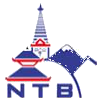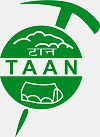Recorded history of Nepal is centered in Kathmandu valley and begins with the Kirantis who are said to have ruled for many centuries beginning from the 7th or 8th Century B.C. with their famous King Yalumber who is even mentioned in the epic, ‘Mahabharata’. The Gopalas who were herdsmen are believed to have ruled before the Kirantis but little is known about them. Their descendants are said to still live at the edge of the valley.
Around 300 A.D. the Lichavis arrived from northern India and overthrew the Kirantis. The descendants of the Kirantis are the Rais and Limbus who predominate in eastern Nepal. One of the legacies of the Lichavis is the fabulous Changu Narayan temple in Bhaktapur which dates back to the 5th Century. In early 7th Century, Amshuvarman, the first Thakuri king took over the throne from his father-in-law who was a Lichavi. He married off his daughter Bhrikuti to the famous Tibetan King Tsong Tsen Gampo thus establishing good relations with that country. Bhrikuti went on to convert the king to Buddhism. The Lichavis brought art and architecture to the valley but the Golden age of creativity arrived with the Mallas who came to power around 1200 A.D.. During their 550 years of sovereignty, the Mallas built an amazing number of temples and splendid palaces with picturesque squares adorned with ancient art and architecture. It was also during their rule that society and the cities became well organized; religious festivals were introduced and literature, music and art were encouraged. Sadly after the death of Yaksha Malla, the valley was divided into three kingdoms:
Kathmandu (Kantipur), Bhaktapur (Bhadgaon) and Patan (Lalitpur). The rivalry among these kingdoms led to the building of grand palaces and the uplifting of the arts and culture.
Around this time, today’s Nepal was divided into about 46 independent principalities. One among them was the kingdom of Gorkha with a Shah king in power. Much of Kathmandu valley’s history around this time was recorded by Capuchin friars who lived here on their way in and out of Tibet.
An ambitious Gorkha King named Prithvi Narayan Shah embarked on a conquering mission that led to the defeat of all the kingdoms in the valley (including Kirtipur which was an independent state) by 1769. Instead of annexing the newly acquired states to his kingdom of Gorkha, Prithvi Narayan decided to move his capital to Kathmandu establishing the Shah dynasty who ruled unified Nepal from 1769 to 2008, until the last Shah king, Gyanendra relinquished his power to make way for total democracy under the rule of a Prime Minister.
The history of the Gorkha state goes back to 1559 when Dravya Shah established a kingdom in an area chiefly inhabited by Magars. At this time Kathmandu valley was ruled by the Malla kings. During the 17th and early 18th centuries, Gorkha continued a slow expansion, conquering various states while forging alliances with others. Prithvi Narayan dedicated himself at an early age to the conquest of the Kathmandu valley. Recognizing the threat of the British Raj in India, he dismissed European missionaries from the country and for more than a century, Nepal remained in isolation. During the mid-19th century Jung Bahadur Rana became Nepal’s first prime minister to wield absolute power relegating the Shah king to a mere figurehead. He started a hereditary reign of the Ranas that lasted for 104 years during which time the Shah Kings had no real power.
The Ranas were overthrown in a democracy movement of early 1950s with the support of an unlikely person, the monarch of Nepal, King Tribhuvan. Soon after the overthrow of the Ranas, King Tribhuvan was reinstated as the head of the state. In early 1959, Tribhuvan’s son King Mahendra issued a new constitution, and the first democratic elections for a national assembly were held. The Nepali Congress Party was victorious and their leader, Bishweshwar Prasad Koirala formed a government and served as the prime minister of Nepal. But by 1960, King Mahendra had changed his mind and dissolved Parliament, dismissing the first democratic government. After many years of restriction in the political parties, they finally mustered enough courage to start a People’s Movement in 1990. With the public rising up against absolute monarchy and demanding democracy, King Birendra accepted constitutional reforms and established a multiparty parliament with himself as the head of state and the Prime Minister heading the government. In May 1991, Nepal held its first parliamentary elections.
In February 1996, one of the Maoist parties went underground to wage a ruthless people’s war against monarchy and the elected government. Then on 1st June 2001, a horrific tragedy wiped out the royal family along with many of their close relatives. The massacre was blamed on the Crown prince Dipendra who is said to have killed them all single-handedly and eventually shot himself in the head. With only King Birendra’s brother, Gyanendra and his family surviving, he was crowned the king.
King Gyanendra tolerated the elected government for only a short while and then dismissed Parliament to grab absolute power. As a result, in April 2006, strikes and street protests in Kathmandu led to a 19-day curfew and the political parties joined forces with the Maoist rebels to bring pressure on the errant monarch. Eventually, King Gyanendra realized it was futile holding on to power and relented. He agreed to reinstate parliament. But the political parties and the majority of the general public had had enough of dynastic rule and their abuse of power. On 28th May 2008, a newly elected Constituent Assembly declared Nepal a Federal Democratic Republic, abolishing the 240 year-old monarchy. Nepal today has ceremonial Presiden and executive Prime Minister heading the Government.












